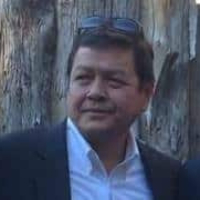Elk Grove Felony Lawyer, California
Sponsored Law Firm
-
 x
x

Click For More Info:
-
Law Offices of Faith Hashemi
980 9th Street Sacramento, CA 95814» view mapEstate Law Legal Expertise. Client Connections.
Faith's experience, negotiation skills, and passion offer unparalleled service for her clients' cases. Connect with her for a full-service legal experience, committed to success.
800-839-9850
Richard Thomas Dudek
✓ VERIFIEDCriminal, Felony, Misdemeanor, White Collar Crime, DUI-DWI
Certified Criminal Law Specialist
Richard Dudek knows the Sacramento courts, procedures and prosecutors. Our highly skilled defense team includes licensed private investigators who use... (more)
FREE CONSULTATION
CONTACTJoseph Patrick Hougnon
DUI-DWI, Personal Injury, Felony, Misdemeanor
Status: In Good Standing Licensed: 28 Years
FREE CONSULTATION
CONTACTJames Murray Warden
Military & Veterans Appeals, Misdemeanor, Felony, Criminal
Status: In Good Standing Licensed: 36 Years
FREE CONSULTATION
CONTACTWraymond K. Plummer
Felony, DUI-DWI, Criminal, Children's Rights
Status: In Good Standing Licensed: 23 Years
 Faith Hashemi Sacramento, CA
Faith Hashemi Sacramento, CA Practice AreasExpertise
Practice AreasExpertise

